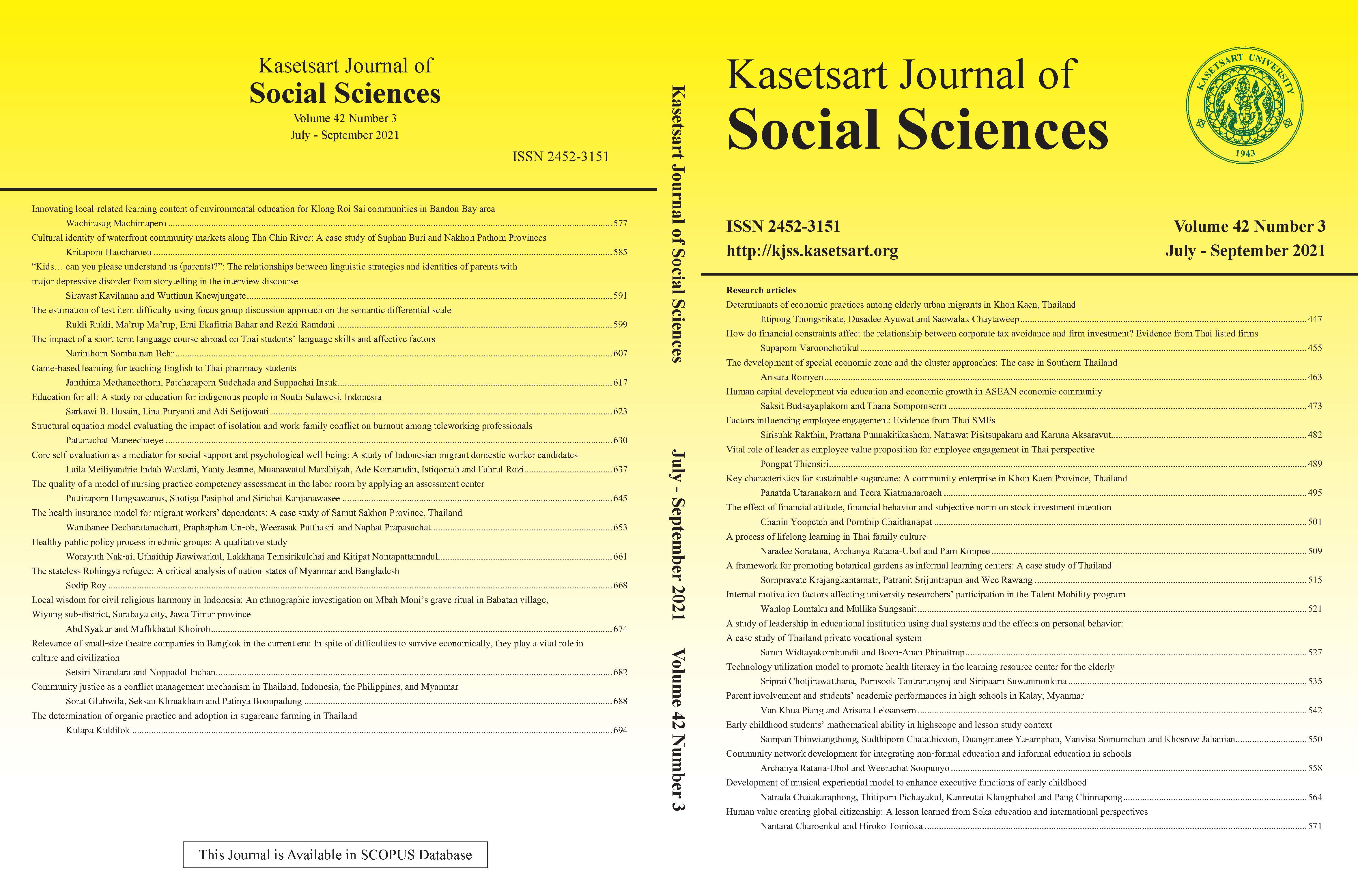A study of leadership in educational institution using dual systems and the effects on personal behavior: A case study of Thailand private vocational system
Keywords:
dual system, loyalty, needs satisfaction, relationship quality, transformational leadershipAbstract
The objective of this research was to find solutions involving the key issues of leadership in educational institutions (transformational leadership), its direct effects on personnel’s behaviour relating to quality of relationship as well as to employees’ loyalty, and its indirect impacts through the mediator variable of personnel’s needs satisfaction. The definitions of relevant key terms, their practical applications and relationships among all related variables create a research conceptual framework design in the context of the dual system of private vocational education administration. This type of education system enables Thai education system to respond to the contemporary labour market. Participants were 396 officers in Thailand private vocational schools. Results from SEM revealed that transformational leadership has a direct impact on needs satisfaction, quality relationship, and leader loyalty. The study suggests fruitful insights for leaders in educational institutions and alternative ways to search for possible relevant variables which affect their employees’ behaviour towards the institutions.
Downloads
Published
How to Cite
Issue
Section
License

This work is licensed under a Creative Commons Attribution-NonCommercial-NoDerivatives 4.0 International License.
This is an open access article under the CC BY-NC-ND license http://creativecommons.org/licenses/by-nc-nd/4.0/










